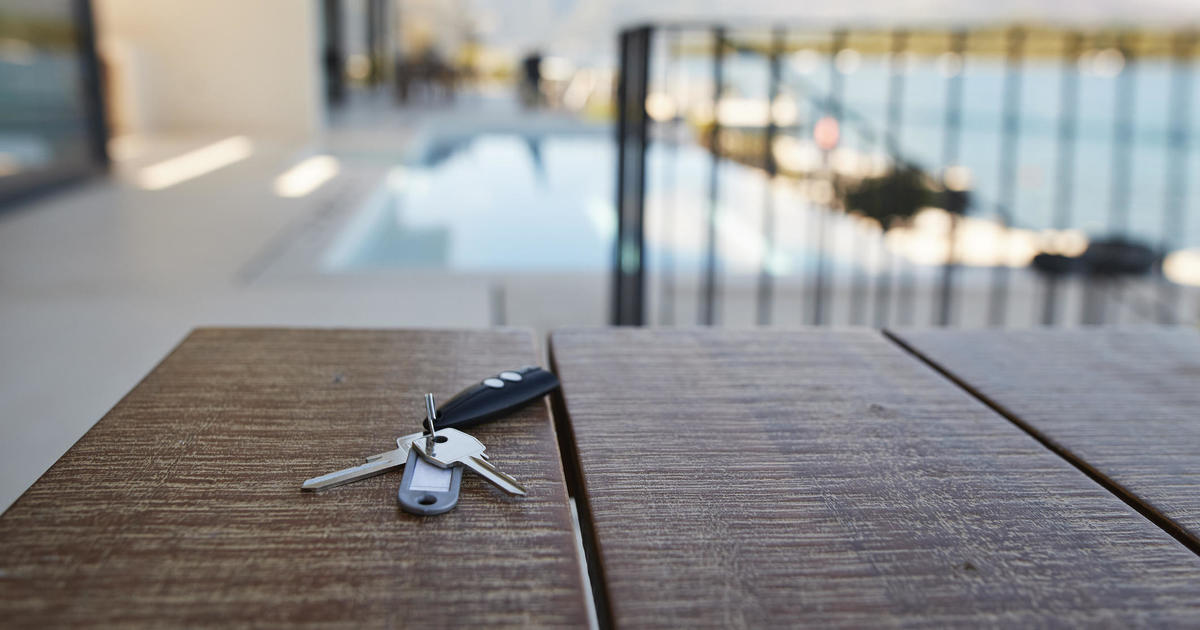We may receive commissions from some links to products on this page. Promotions are subject to availability and retailer terms.

If you're a homeowner who needs to borrow money at a low rate, this is a great time to do so. Thanks to growing home values and a still-tight housing market, the average homeowner has about $299,000 worth of home equity right now — about $200,000 of which is tappable home equity that can be used for a variety of purposes. And, while rates remain high on most other types of loan products, like credit cards and personal loans, the rates on home equity loans are significantly lower on average.
In other words, many homeowners currently have access to a smart way to borrow via their home's equity, which can be used for anything from low-interest debt consolidation to paying for education expenses, startup business costs or home renovations and repairs. You can even use your home's equity to purchase a second home if that's your goal.
And, while it can make sense to leave your home's equity untapped to use as a financial safety net, there are certain situations where leveraging it to purchase a second home can be a wise move. However, this decision should be carefully considered, as it involves taking on additional debt and potential risks. So when does it make sense to use your home equity to buy a second home?
Find out what today's top home equity loan rates are online now.
5 times to use home equity to buy a second home
Here are a few scenarios where using home equity to buy a second home could be a wise move.
To purchase an investment property
One of the most compelling reasons to use home equity for a second home purchase is to acquire an investment property, whether the plan is to use it as a short- or long-term rental or to fix and flip the property. If you have the financial capacity and the real estate market conditions are favorable, investing in a rental property can provide a steady stream of passive income and potential long-term appreciation.
By using the equity in your primary residence to purchase the investment property, you can minimize the initial cash outlay and potentially benefit from tax deductions on mortgage interest and other expenses associated with it.
Explore how your home equity could make borrowing affordable here.
For a vacation home
For those who love to travel and have the means to do so, a vacation home can be an appealing investment. Using your primary home's equity to finance the purchase can be a viable option, and it can make even more sense if you plan to rent out the property when it's not in use by you or your family.
By taking this approach, you can help offset the costs of ownership and potentially generate income. And, owning a vacation home can provide a sense of security and familiarity when traveling, as well as a potential source of future appreciation.
To create a multi-generational living arrangement
As the costs of eldercare and assisted living continue to rise, many families are exploring the option of multi-generational living arrangements. By using home equity to purchase a second home, you may be able to create a living space geared toward your aging parents or adult children while allowing them to have their privacy and independence.
This setup can also provide significant cost savings compared to traditional long-term care facilities, which can cost thousands of dollars per month or more depending on where you live, the type of care your loved one needs and other factors.
To relocate for work or lifestyle changes
There may be situations in which a homeowner needs to relocate for work or lifestyle reasons but are hesitant to sell their current home due to various factors, such as an unfavorable market, an emotional attachment to the home or having a very low rate on the mortgage loan for that property — such as the 3% mortgage loan rates that were prevalent in 2020 and 2021.
In these cases, leveraging the current home's equity to purchase a second home in the new location can provide a temporary solution until the primary residence can be sold or rented out. By taking this approach, it allows for a smoother transition and avoids the need to rush into selling the existing home at an inopportune time.
Preparing for retirement
For those nearing retirement, using home equity to purchase a second home in a desired retirement destination can be a strategic move. By securing a property in advance, you can lock in a favorable purchase price and begin enjoying the benefits of your chosen location before fully retiring. This approach can also provide a potential source of rental income until you're ready to make the permanent move, helping to build or grow your retirement nest egg.
The bottom line
While these scenarios present compelling reasons to use home equity for a second home purchase, remember that it's essential to carefully evaluate your financial situation and long-term goals before making this move. Factors such as your credit score, debt-to-income ratio and the potential impact on your retirement savings should be thoroughly considered before using your current home's equity to purchase a second home, whether you want to buy an investment property, a vacation home or a property to use during retirement.
And remember that it's crucial to have a solid plan for managing the ongoing costs associated with owning and maintaining two properties. By weighing all of the factors and developing a well-thought-out strategy, using home equity to purchase a second home can be a viable path to achieving your financial and lifestyle goals.
Angelica Leicht is senior editor for CBS' Moneywatch: Managing Your Money, where she writes and edits articles on a range of personal finance topics. Angelica previously held editing roles at The Simple Dollar, Interest, HousingWire and other financial publications.
